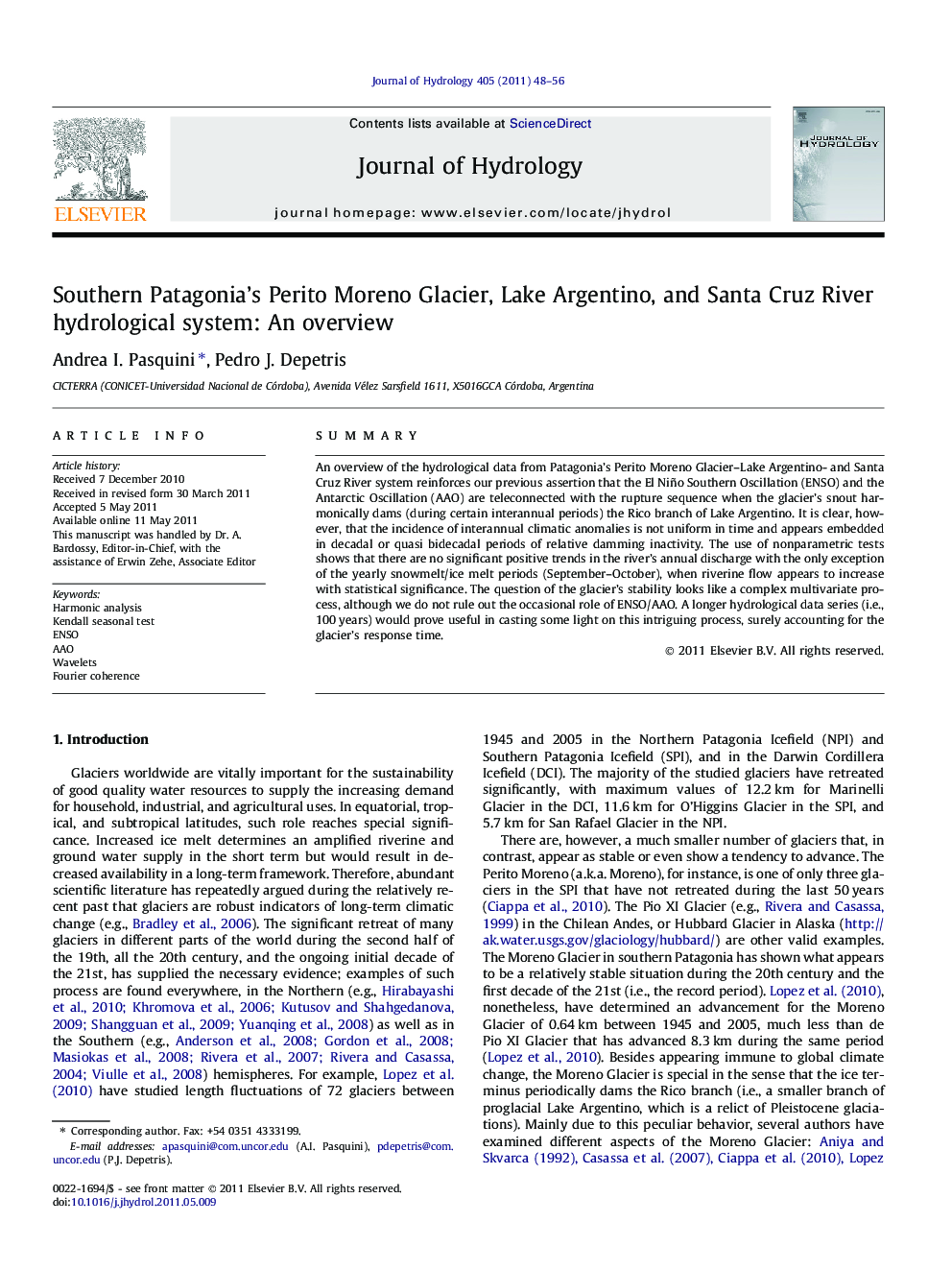| کد مقاله | کد نشریه | سال انتشار | مقاله انگلیسی | نسخه تمام متن |
|---|---|---|---|---|
| 4577428 | 1630018 | 2011 | 9 صفحه PDF | دانلود رایگان |

SummaryAn overview of the hydrological data from Patagonia’s Perito Moreno Glacier–Lake Argentino- and Santa Cruz River system reinforces our previous assertion that the El Niño Southern Oscillation (ENSO) and the Antarctic Oscillation (AAO) are teleconnected with the rupture sequence when the glacier’s snout harmonically dams (during certain interannual periods) the Rico branch of Lake Argentino. It is clear, however, that the incidence of interannual climatic anomalies is not uniform in time and appears embedded in decadal or quasi bidecadal periods of relative damming inactivity. The use of nonparametric tests shows that there are no significant positive trends in the river’s annual discharge with the only exception of the yearly snowmelt/ice melt periods (September–October), when riverine flow appears to increase with statistical significance. The question of the glacier’s stability looks like a complex multivariate process, although we do not rule out the occasional role of ENSO/AAO. A longer hydrological data series (i.e., 100 years) would prove useful in casting some light on this intriguing process, surely accounting for the glacier’s response time.
► The hydrology of Patagonia’s Moreno Glacier system suggests the influence of ENSO and AAO over the snout dynamics.
► The incidence of interannual climatic anomalies appears embedded in decadal or quasi bidecadal damming periods.
► There is no significant trend in the Santa Cruz River’s discharge with the exception of the southern spring melt periods.
► The glacier’s stability looks like a complex multivariate process and we do not rule out the occasional role of ENSO/AAO.
Journal: Journal of Hydrology - Volume 405, Issues 1–2, 21 July 2011, Pages 48–56